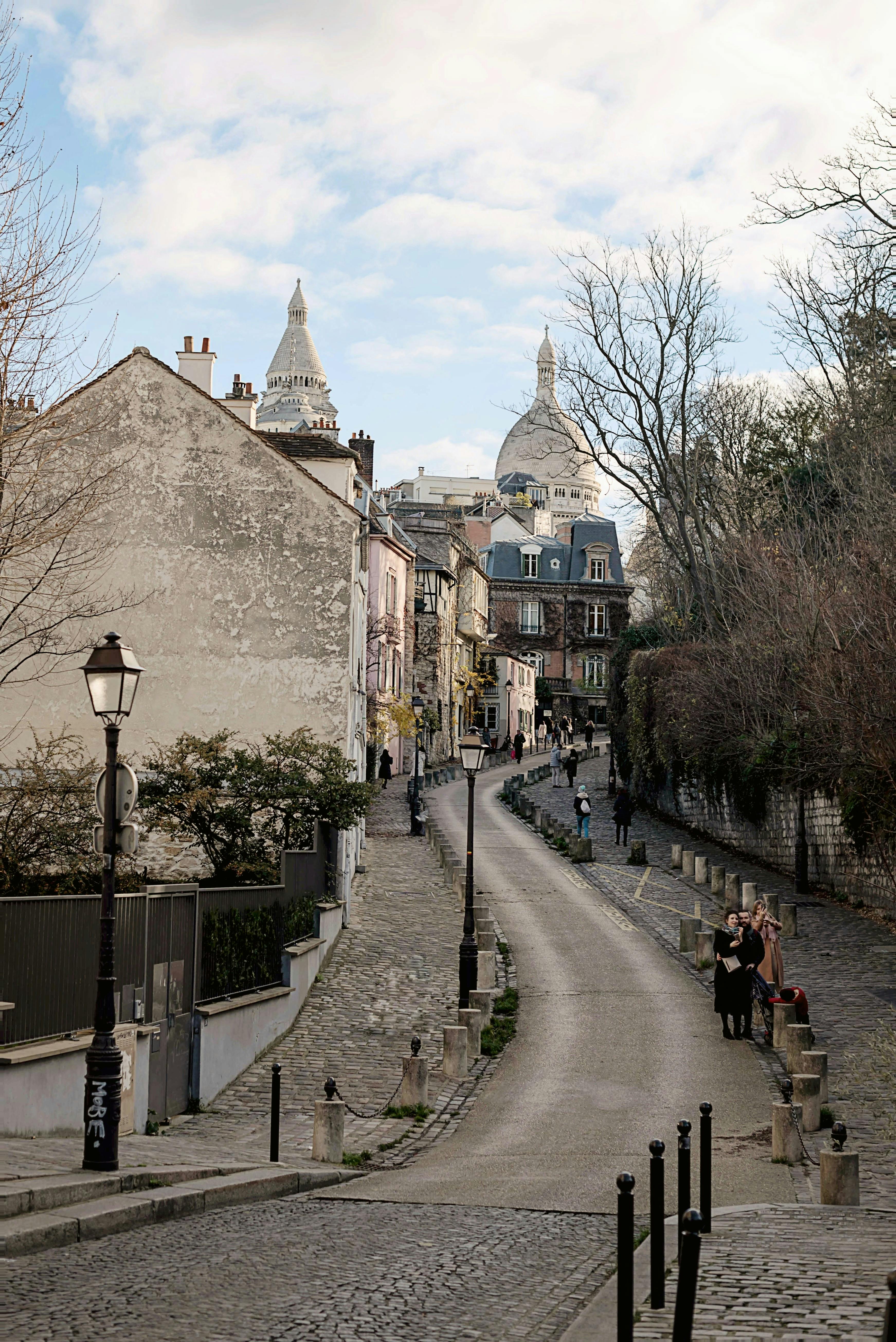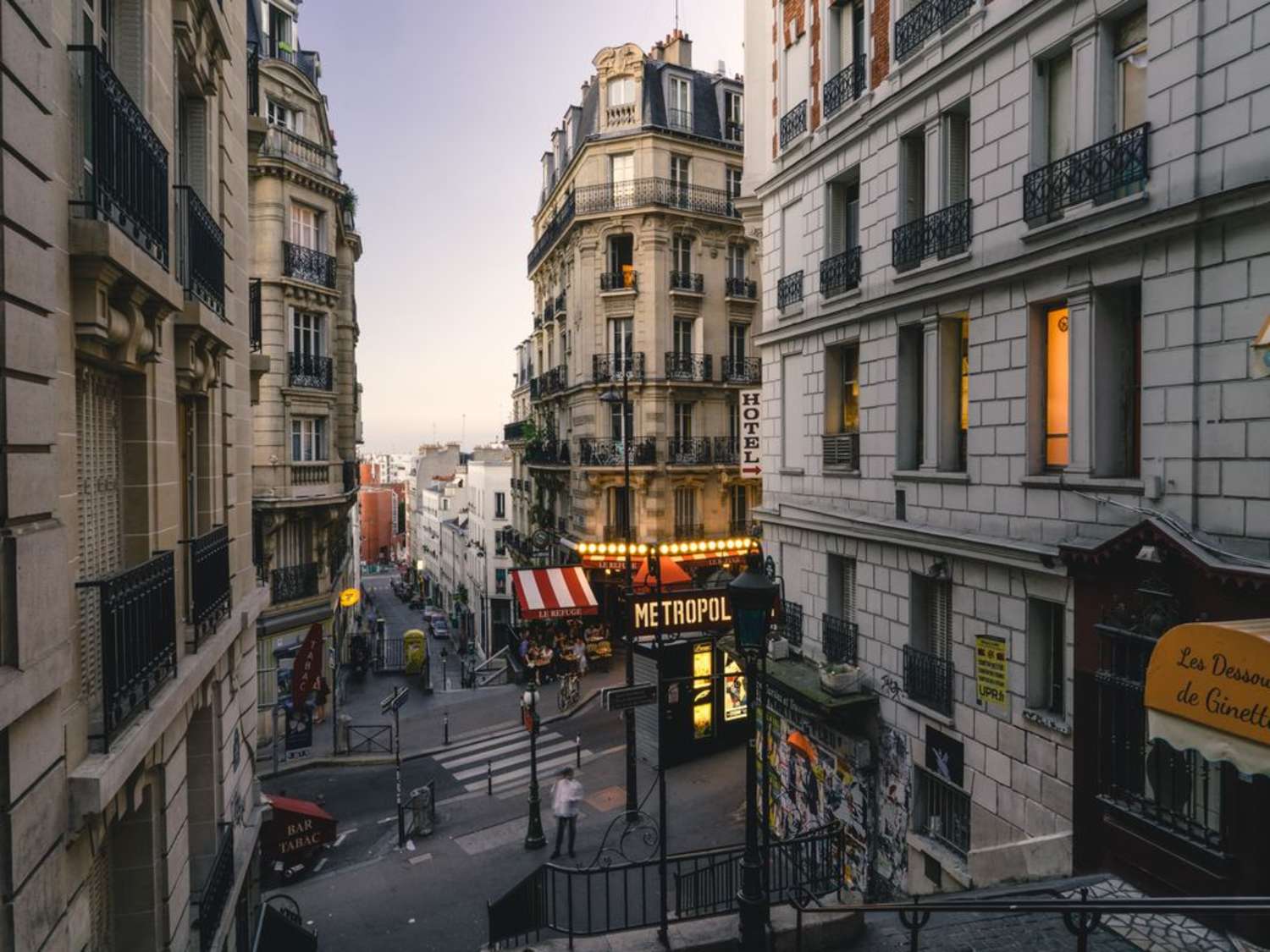Paris, the city of lights and artistic inspiration, has played a pivotal role in the history of cinema. From the birth of the medium to the flourishing of French New Wave, let’s explore the captivating journey of kino (cinema) in Paris.
Lumière Brothers and the Birth of Cinema:
In 1895, the Lumière brothers, Louis and Auguste Lumière, held the first public film screening at the Grand Café in Paris. Their invention, the Cinematograph, mesmerized audiences with short films capturing everyday scenes. This landmark event marked the birth of cinema, and Paris became a hub of cinematic innovation.
The Belle Époque Era:
During the Belle Époque era (1871-1914), Paris experienced a cultural renaissance, and cinema thrived as a new form of entertainment. The city witnessed the emergence of vibrant film theaters, such as the Gaumont Palace and the Pathé Cinema. There where audiences flocked to experience the magic of moving images.
French Avant-Garde:
In the 1920s, Paris became a hub for avant-garde and experimental filmmaking. Artists and filmmakers like Marcel Duchamp, Man Ray, and Germaine Dulac embraced the possibilities of cinema as an art form, pushing boundaries and challenging traditional storytelling techniques
French New Wave:
The French New Wave movement emerged in the late 1950s and early 1960s, with Paris at its heart. Filmmakers like François Truffaut, Jean-Luc Godard, and Éric Rohmer revolutionized cinema with their innovative storytelling and unconventional techniques. Influenced by their love for cinema and their desire to break free from established norms, these filmmakers brought a fresh and exciting wave of creativity to the silver screen.
Cinémathèque Française:
Founded in 1936 by Henri Langlois, the Cinémathèque Française became a revered institution in preserving and promoting the heritage of cinema. Located in Paris, it houses an extensive collection of films from around the world. It has played a vital role in the preservation and restoration of classic films.
Film Festivals and Cinematic Celebrations:
Paris hosts numerous film festivals, including the prestigious Cannes Film Festival. Where filmmakers and cinephiles gather to celebrate the art of cinema. Additionally, festivals like the Paris International Film Festival and the Cinéma du Réel showcase a diverse range of films. Highlighting the city’s ongoing commitment to fostering cinematic creativity.
Contemporary Cinema Landscape:
Today, Paris continues to be a vibrant center for cinema. The city boasts a plethora of independent cinemas, art house theaters, and film institutions. That showcase a diverse range of films from around the world. Parisian cinephiles and filmmakers contribute to the ever-evolving landscape of cinema, ensuring that the love for kino in Paris remains as strong as ever.
Paris, with its rich cinematic heritage, has been a source of inspiration for filmmakers, an artistic hub for cinephiles, and a testament to the enduring magic of cinema. From the Lumière brothers’ early experiments to the groundbreaking French New Wave, the history of kino in Paris is an integral part of the city’s cultural identity, perpetuating its reputation as a cinematic capital.

Paris is renowned for its significant contributions to the history of cinema. Here are some of the most famous places associated with the cinematic heritage of the city:
- Grand Café: Located at 14 Boulevard des Capucines, the Grand Café holds immense historical importance as the site of the first public film screening by the Lumière brothers in 1895. This iconic café played a crucial role in introducing cinema to the world and remains a symbolic landmark in the history of motion pictures.
- Cinémathèque Française: The Cinémathèque Française, situated at 51 Rue de Bercy, is a prestigious institution dedicated to preserving and showcasing the rich heritage of cinema. It houses an extensive collection of films, hosts retrospectives, film screenings, and exhibitions, making it a vital center for cinephiles and film enthusiasts.
- Montmartre: Montmartre, a neighborhood in Paris, holds a special place in the history of cinema. It served as a backdrop for iconic films such as Jean Renoir’s “La Grande Illusion” (1937) and Jean-Pierre Jeunet’s “Amélie” (2001). The charming streets, including Rue Lepic and the iconic Sacré-Cœur Basilica, have been featured in numerous cinematic works.
- Le Champo: Le Champo is a legendary cinema located at 51 Rue des Écoles. Established in 1938, this historic theater has been at the forefront of promoting art house cinema and hosting retrospectives of renowned filmmakers. It continues to be a favorite spot for cinephiles, showcasing a diverse range of films from around the world.
- Montmartre: La Cinémathèque française, situated at 75012 Paris, is another significant venue dedicated to cinema. It hosts film screenings, retrospectives, and exhibitions, celebrating the works of renowned filmmakers and contributing to the preservation and promotion of cinema as an art form.
- Les Studios de la Victorine: Although located in Nice, Les Studios de la Victorine has strong ties to the history of French cinema. Many iconic French films, including François Truffaut’s “The 400 Blows” (1959) and Jean-Luc Godard’s “Pierrot le Fou” (1965), were shot at this historic studio. It continues to be an important symbol of French film production.
- Cannes Film Festival: While not in Paris, the Cannes Film Festival, held annually in the city of Cannes, is an iconic event closely associated with French cinema. It attracts renowned filmmakers, actors, and industry professionals from around the world and serves as a platform for premiering and celebrating exceptional films.
These places represent a fraction of the many iconic locations in Paris that have contributed to the history and legacy of cinema. Exploring them provides a glimpse into the city’s profound impact on the development and appreciation of the art of filmmaking.
